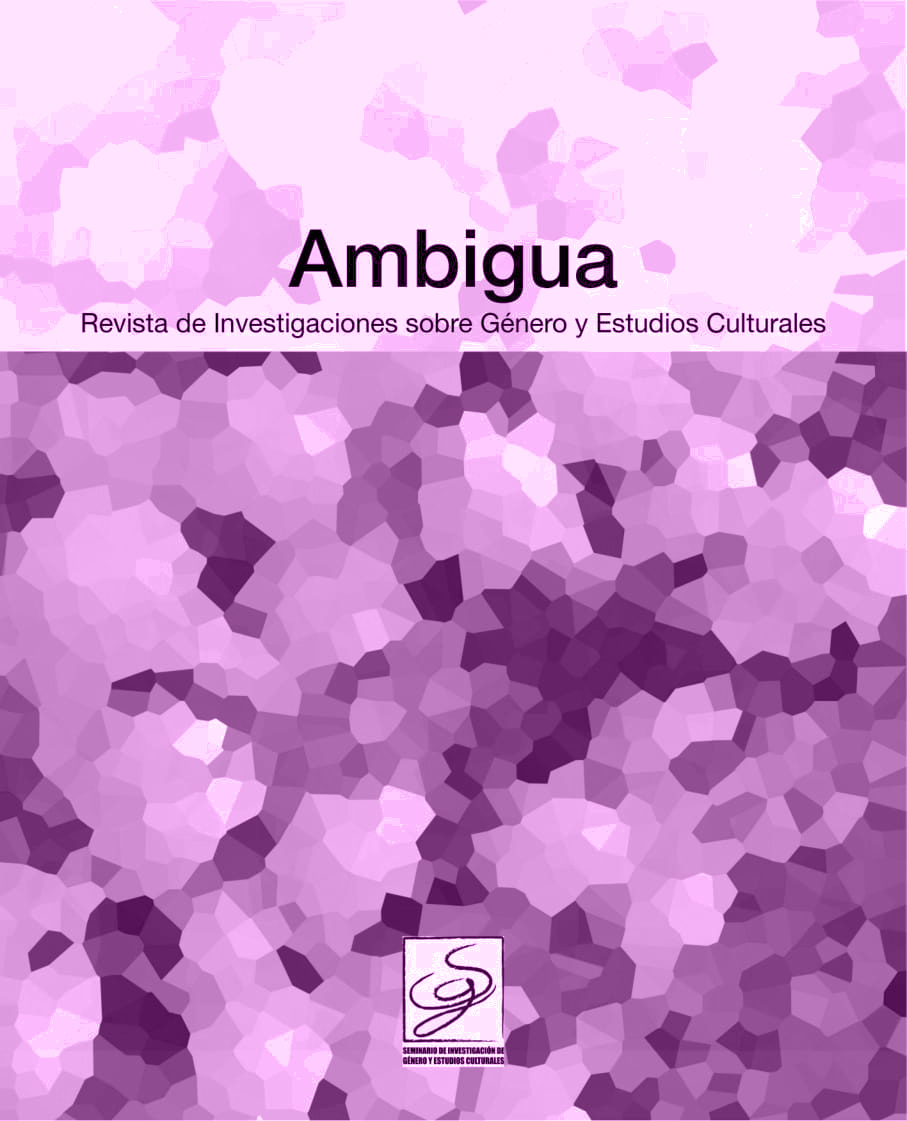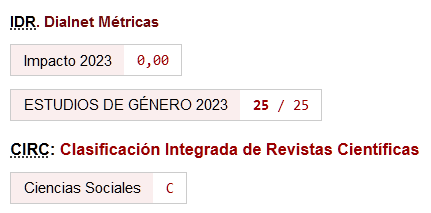La locura de las mujeres
prisión y subterfugio
DOI:
https://doi.org/10.46661/ambigua.4915Palabras clave:
locura, violencia, mujeres, estigma , discurso, enfermedad, psiquiátrico, hegemónico, poderResumen
La locura como padecimiento ligado a la vida de las mujeres parece manifestarse en primera instancia como una continuidad histórica y cultural, un estadio que todas han atravesado ya sea por un instante o durante toda su existencia.
Analizar el entramado de la locura, las violencias, los estigmas y cómo ellos se presentan transversalmente en las mujeres de manera sistemática e histórica deviene una tarea imprescindible aunque inabarcable en este artículo; lo que aquí se aborda y se cuestiona de manera específica es la noción y categoría que entraña ser loca hoy en día dentro de las sociedades occidentales en las que la(s) violencia(s), como factor constante más allá de sus diversas expresiones, cumple(n) un rol fundamental.
Descargas
Citas
Barraco, Angel. “Salud mental: el poder médico-psiquiátrico reconfigura su hegemonía”. Revista Heterotopías del Área de Estudios del Discurso de FFyH, 1 (1) (2018). Recuperado de: https://revistas.unc.edu.ar/index.php/heterotopias/article/view/19983/23160.
Basaglia, Franca. Mujer, sociedad y política. Puebla, México: Universidad Autónoma de Puebla, ([1983]1985).
Benjamin, Walter. “Para una crítica de la violencia”. Escuela de Filosofía Universidad ARCIS (1921). Recuperado de: https://www.ddooss.org/articulos/textos/walter_benjamin.pdf
Contreras Tapia, Javiera Patricia. Enajenadas, poder y locura (Tesis para optar al grado de Magíster en Estudios de Género y Cultura en América Latina). Facultad de Filosofía y Humanidades, Universidad de Chile, Santiago de Chile, 2015.
De Beauvoir, Simone. Introducción. In El Segundo sexo, Simone de Beauvoir, 2-23. Recuperado de: https://www.segobver.gob.mx/genero/docs/Biblioteca/El_segundo_sexo.pdf, 1949.
Foucault, Michel. Enfermedad mental y personalidad. Buenos Aires, Argentina: Paidós, ([1961]2008).
Foucault, Michel. Vigilar y castigar: Nacimiento de la prisión. Buenos Aires, Argentina: Siglo Veintiuno Editores, ([1975]2008).
King, Angela. “The Prisoner of Gender: Foucault and the Disciplining of the Female Body”. Journal of International Women´s Studies, 5 (2) (2004): 29-39.
Lagarde y de los Ríos, Marcela. Los cautiverios de las mujeres: madresposas, monjas, putas, presas y locas. Coyoacán, México: Universidad Nacional Autónoma de México, ([1990]2005).
Nietzsche, Friedrich. La genealogía de la moral. Madrid, España: Alianza Editoria, ([1972]1997).
Ruiz Somavilla, María José & Jiménez Lucena, Isabel. “Tendencias, género, mujeres y psiquiatría: una aproximación crítica”. FRENIA, III (1) (2003): 7-29.
Szasz, Thomas S. La fabricación de la locura. Recuperado de: https://proletarios.org/books/Szasz-La-Fabricacion-de-La-Locura.pdf, ([1974]2005).
Woolf, Virginia. Un cuarto propio. Buenos Aires, Argentina: Losada, (2013).
Descargas
Publicado
Cómo citar
Número
Sección
Licencia
Derechos de autor 2020 Renata Bega Martinez

Esta obra está bajo una licencia internacional Creative Commons Atribución-NoComercial-CompartirIgual 4.0.
Las autorías que publican en esta revista están de acuerdo con los siguientes términos:
- Los autores conservan los derechos de autor y garantizan a la revista el derecho de ser la primera publicación del trabajo al igual que licenciado bajo Licencia Creative Commons Atribución-NoComercial-CompartirIgual 4.0 Internacional la publicación inicial en esta revista: Attribution-NonCommercial-ShareAlike 4.0 International (CC BY-NC-SA 4.0)
- Las autorías pueden establecer por separado acuerdos adicionales para la distribución no exclusiva de la versión de la obra publicada en la revista (por ejemplo, situarlo en un repositorio institucional o publicarlo en un libro), con un reconocimiento de su publicación inicial en esta revista.
- Se permite y se anima a las autorías a difundir sus trabajos electrónicamente (por ejemplo, en repositorios institucionales o en su propio sitio web) antes y durante el proceso de envío, ya que puede dar lugar a intercambios productivos, así como a una citación más temprana y mayor de los trabajos publicados (Véase The Effect of Open Access) (en inglés).
- Esta revista no cobra por publicar, es decir, no tiene APC's (the journal does not have article processing charges)
- Esta revista tampoco cobra ninguna tasa por el envío/presentación de trabajos (the journal does not have article submission charges)









